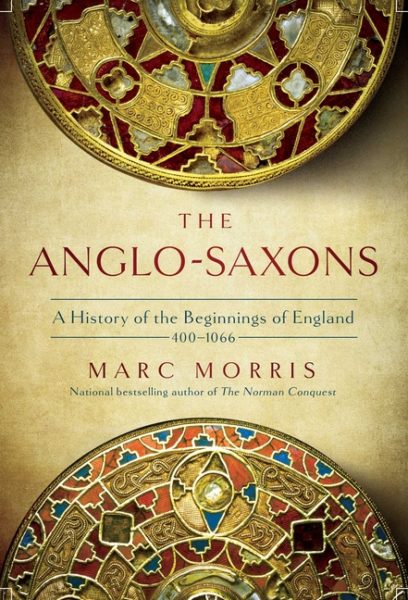At First Things, Francis Young reviews The Anglo-Saxons: A History of the Beginnings of England by Marc Morris:
The art of telling stories will always be closely associated with the Anglo-Saxons. Beowulf, the era’s best-known epic poem, begins with a word that is difficult to translate, summoning an audience to attention: “Hwæt!” The same word opens another great poem of early medieval England, The Dream of the Rood, in which the wood of the Cross speaks and narrates a uniquely Anglo-Saxon Passion — a reminder that it was the Anglo-Saxons who built Christian England.
These people, as Marc Morris observes, were tellers of tales; and yet, until now, there has been no modern narrative history that weaves together the insights of archaeologists, historians, and literary scholars. Morris has risen to the task, tracing the journey of the English-speaking inhabitants of the island of Britain from tribal warbands to a highly sophisticated medieval kingdom on the eve of the Norman Conquest.
This is a triumph of historical storytelling, woven together from the scattered evidence of archaeology, numismatics, chronicles, charters, and many other sources. The narrative that emerges from these difficult sources is, of course, contentious; after all, even the use of the term “Anglo-Saxon” is now debated by scholars. But the narrative is also compelling, rooted in the primary sources, iconoclastic of received interpretations, and — most importantly — the product of a commanding historical imagination. This is an account of the Anglo-Saxons that will inform our perception of them for years to come.
It would be perfectly possible to challenge virtually every one of the author’s interpretations: As Morris notes, “The less evidence, the more contention,” especially when it comes to the chaotic documentary void of the fifth and sixth centuries. (By comparison, by the mid-eleventh century there is a comparative richness of documentary sources.) The first question is about the nature of Germanic immigration after the departure of the Roman legions at the beginning of the fifth century. Morris leans toward a more traditional “replacement” model in which Germanic settlers took the place of the Britons in the landscape. Morris places a great deal of weight on the linguistic evidence, which shows that Brittonic (the language of the Britons) had little influence on Old English. If the Anglo-Saxons had largely assimilated the Britons, rather than replacing them, we might expect many more Brittonic loanwords.
According to Morris, “The broken Britain that the Saxons found … had no allure.” Post-Roman Britain was “in every sense a degraded society, sifting through the detritus of an earlier civilisation.” Morris follows in the tradition of Bede by viewing the Britons as decadent, but this is by no means the only possible view of post-Roman society. Recent scholarship by Miles Russell and Stuart Laycock has drawn attention to Britain’s failure to become Romanized in the first place, raising the question of whether the abandonment of urban life in the early fifth century should be seen as a sign of decline, and Susan Oosthuizen has argued that rural Britain continued to prosper in the absence of urban settlement; it simply thrived on its own terms as a non-urban society.




